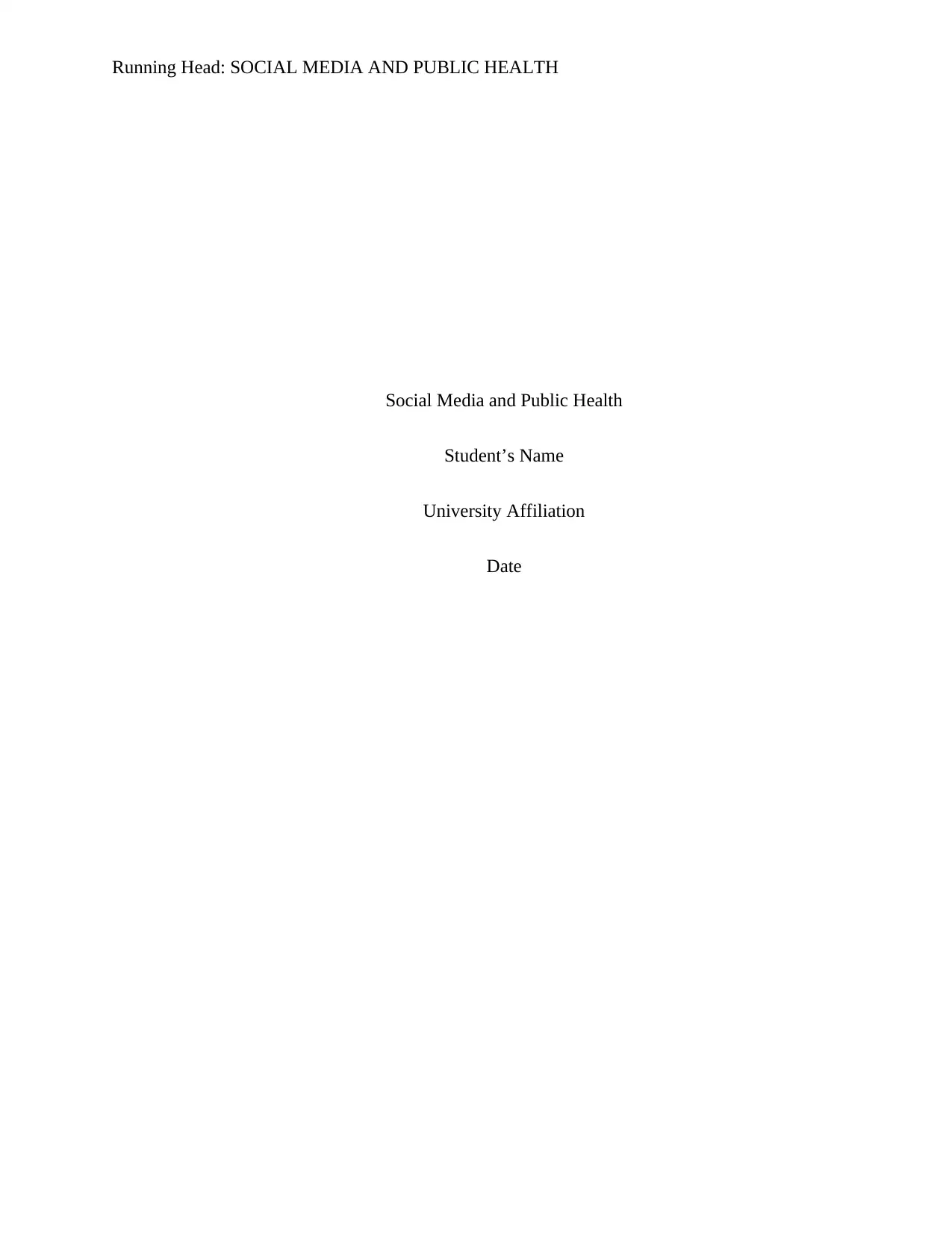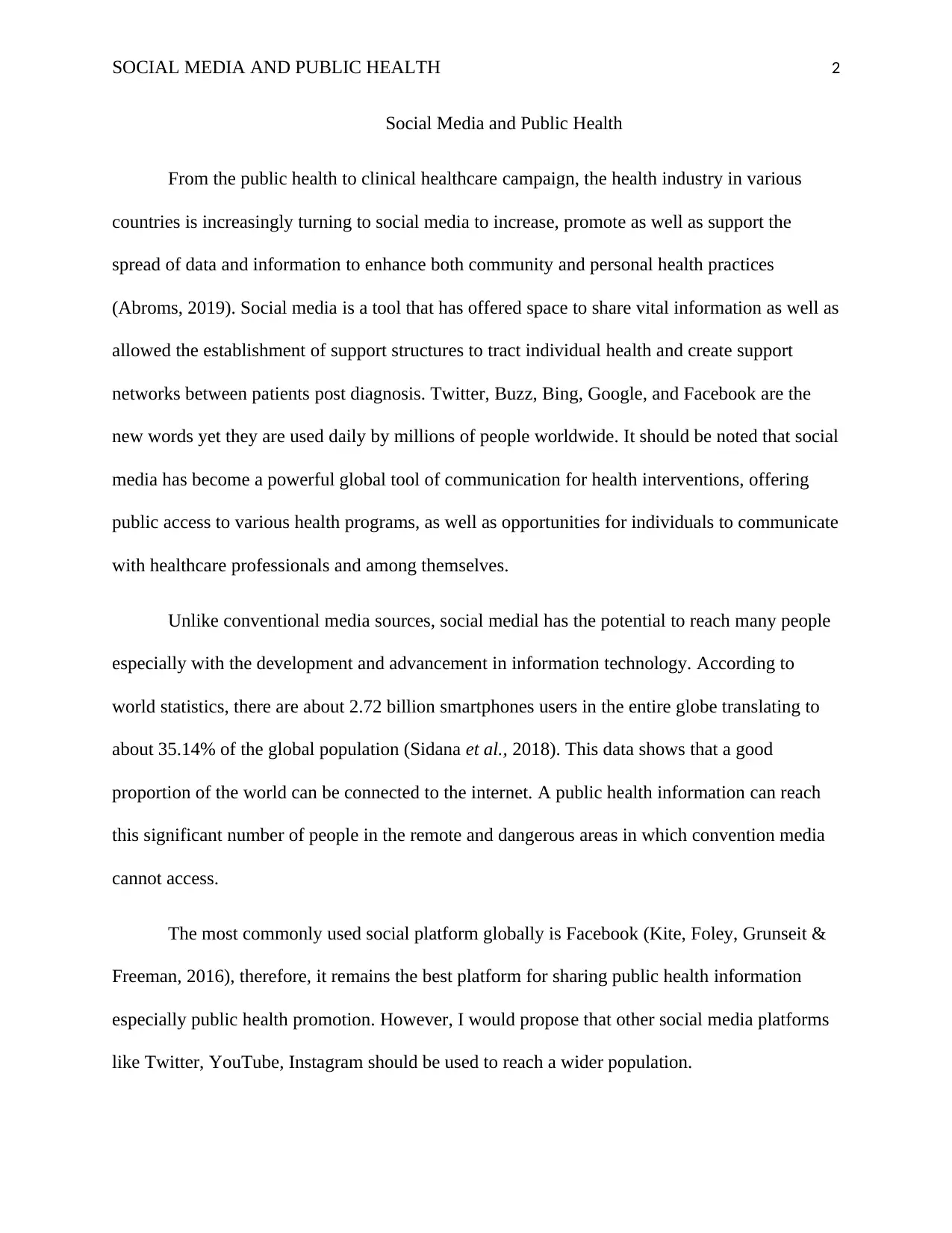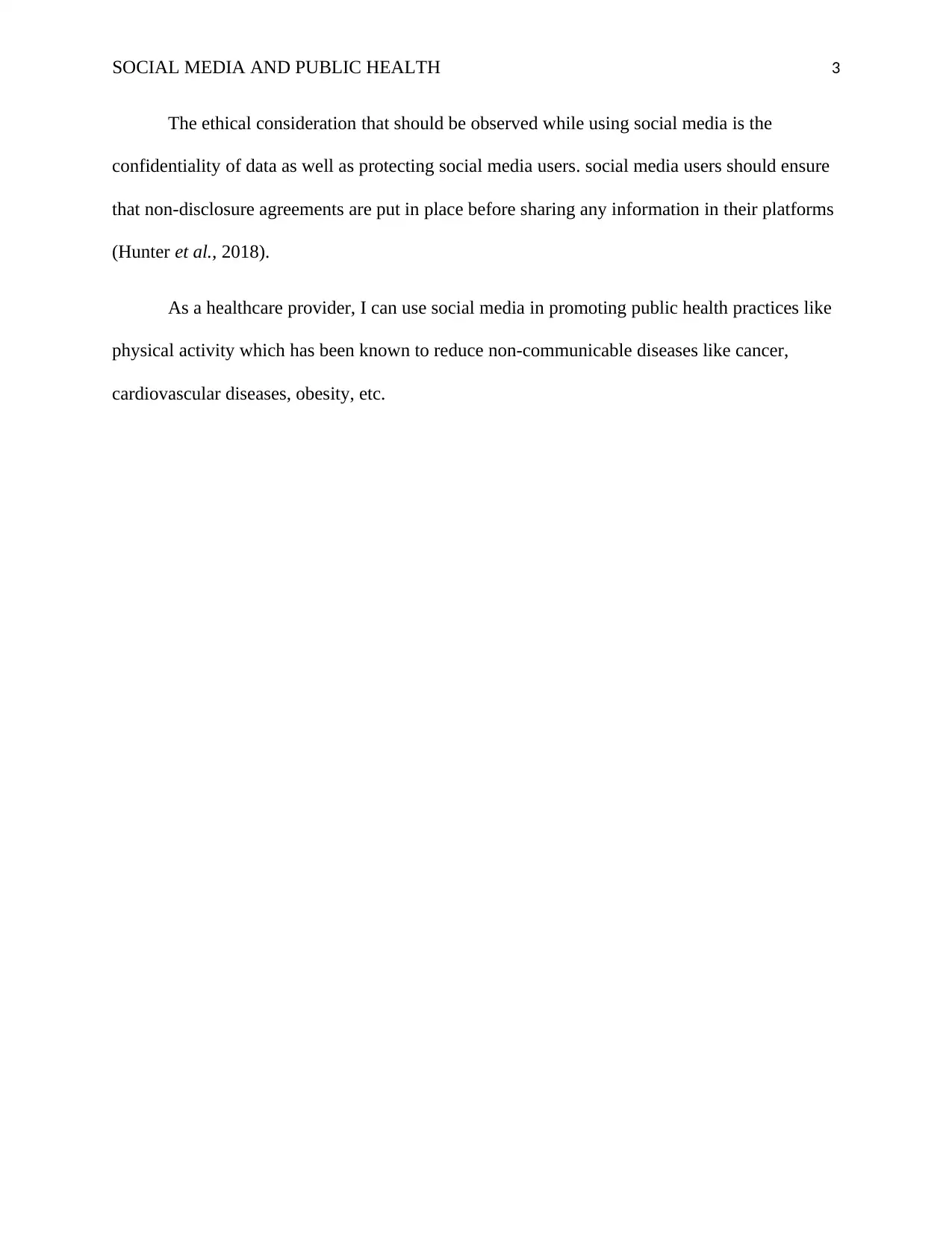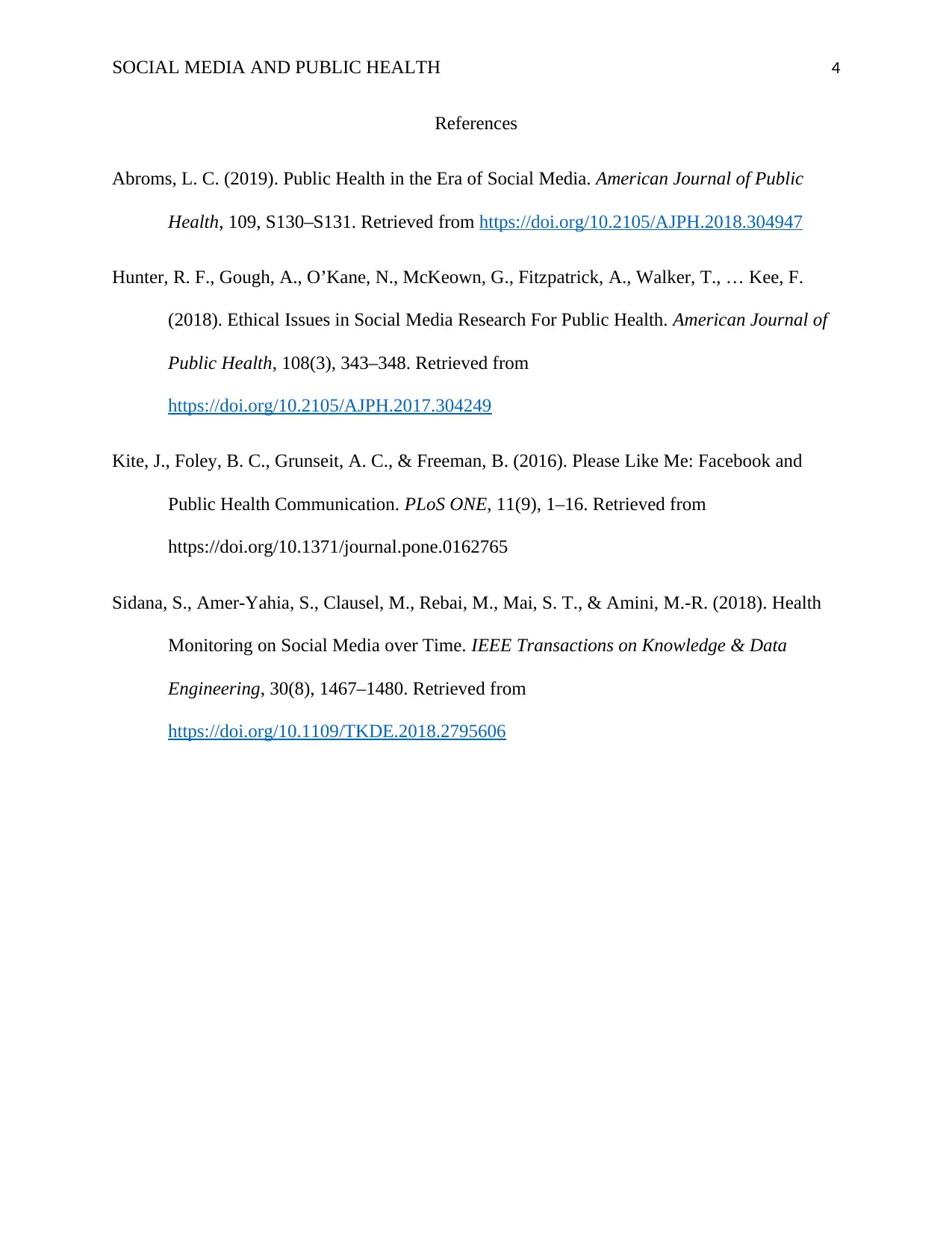The Impact of Social Media on Modern Public Health Practices
VerifiedAdded on 2022/09/16
|4
|632
|16
Report
AI Summary
This report examines the significant role of social media in contemporary public health practices. It highlights how the healthcare industry utilizes platforms like Facebook, Twitter, and YouTube to disseminate vital health information, promote campaigns, and establish support networks. The report emphasizes the importance of reaching a wide audience, considering the global prevalence of smartphone users and internet access. It also addresses the ethical considerations of data confidentiality and user protection. The author proposes strategies for using social media to promote health practices, such as physical activity, and references relevant studies that support the use of social media in public health interventions. The report concludes with a call to action to leverage social media's potential in enhancing community and individual health practices.
1 out of 4










![[object Object]](/_next/static/media/star-bottom.7253800d.svg)